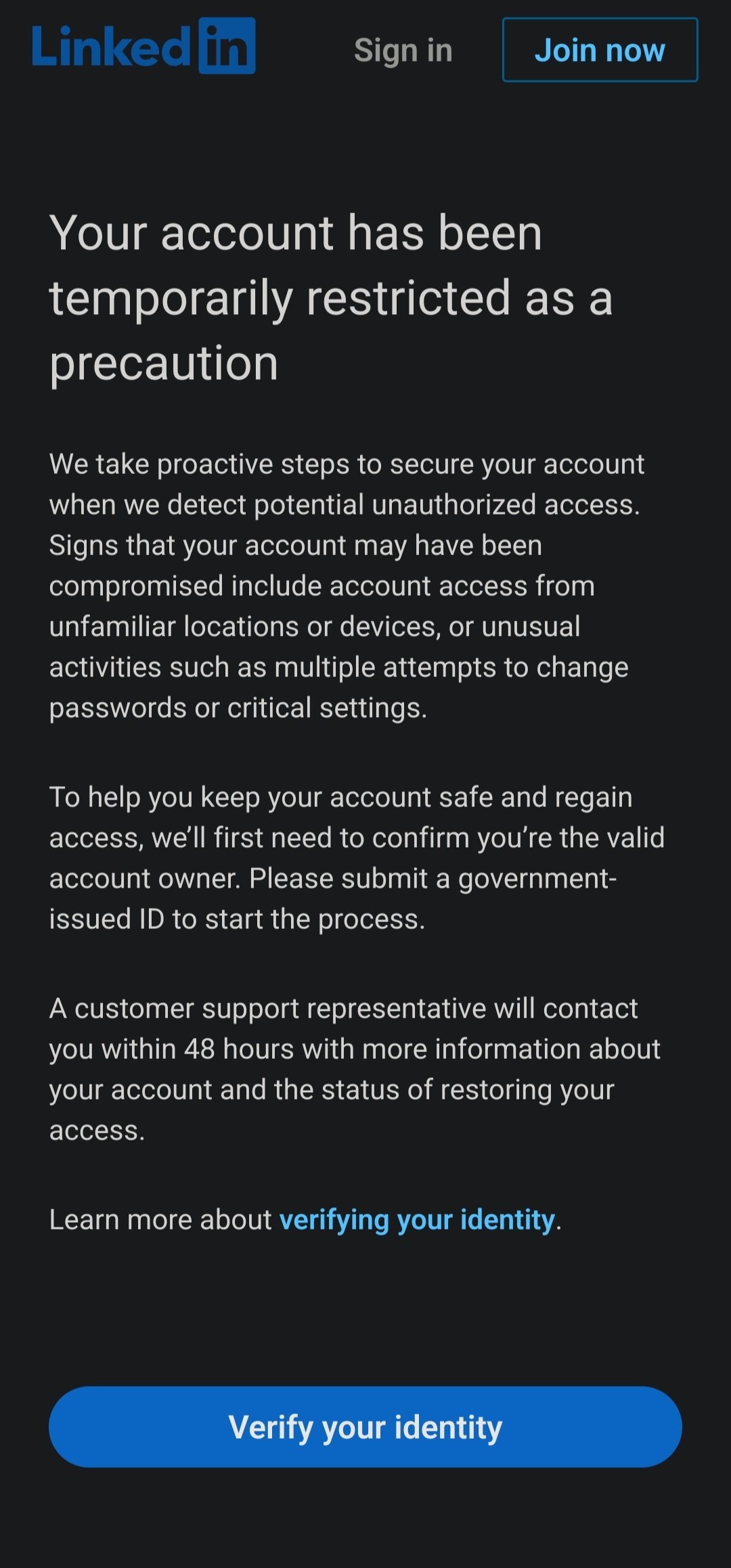this post was submitted on 04 Jun 2024
306 points (93.0% liked)
Technology
59390 readers
2712 users here now
This is a most excellent place for technology news and articles.
Our Rules
- Follow the lemmy.world rules.
- Only tech related content.
- Be excellent to each another!
- Mod approved content bots can post up to 10 articles per day.
- Threads asking for personal tech support may be deleted.
- Politics threads may be removed.
- No memes allowed as posts, OK to post as comments.
- Only approved bots from the list below, to ask if your bot can be added please contact us.
- Check for duplicates before posting, duplicates may be removed
Approved Bots
founded 1 year ago
MODERATORS
you are viewing a single comment's thread
view the rest of the comments
view the rest of the comments

I am fascinated by this. I guess when there is no universally recognized ID it feels weirder?
I mean, sure, by all means withhold info from social media platforms, but if it's one where you're going to have your real name and your whole-ass work history on public display, surely verifying your ID is trivial? You could absolutely google the info in a LinkedIn page and find a bunch of additional info anyway.
I get it intellectually, it's a taboo now, just like it's a taboo to have people find out your address or phone number when it used to be publicly listed until a few years ago. It's just weird that it's still a taboo for the services where verifying your ID is presumably a feature, not a bug.
Its one of the challenges that seriously doesn't seem to have an easy solution. Like the closest I can think of is a centralized authority that the service can send a identity verification request to that, then the user can sign into the centralized authority and confirm "yes I am the person you requested to verify"
This would also help with annoying employment verification where I have to bring every document needed to steal my identity to my new employer for them to scan and digitally store indefinitely then return said documents to my safe
The EU is trying to make an "eID"
https://www.consilium.europa.eu/en/press/press-releases/2023/11/08/european-digital-identity-council-and-parliament-reach-a-provisional-agreement-on-eid/
My question with that is one of usability. Where I live our ID has digital certifications in it and you can theoretically use it for online authentication. It's just a mess of a system, so people tend to pick other options.
I mean, it works... it's just that it's hard enough to use that you often are given alternative tools for verified ID and most people use those because they're more convenient than the solution that is meant to be the convenient standard. It's a once and future XKCD strip.
The authenticated, secure, universal ID card is pretty handy still, though.
If only they would make an eJobplatform.